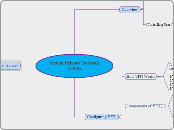par sihui lau Il y a 16 années
898
Virtual Private Netw
A Virtual Private Network (VPN) allows secure access to a private network over a public network. The infrastructure supporting VPN includes various components such as network access clients, authentication, and authorization mechanisms.









